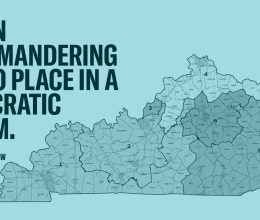
On this Juneteenth, we are reminded of the resilience, strength,and enduring spirit of the Black community. Juneteenth commemorates the emancipation of African Americans who were enslaved in the US, marking the day – June 19, 1865 – when the news of freedom reached Galveston, Texas, two and a half years after the signing of the Emancipation Proclamation. For many who identify as Black in the United States, Juneteenth carries a bittersweet significance beyond being a historical milestone. It stands as a poignant call to action in our ongoing fight against systemic racism and anti-Blackness.
Amidst increasing attacks on Diversity, Equity, and Inclusion (DEI) initiatives and a troubling rise in anti-Blackness in Kentucky and across the United States, Juneteenth takes on even greater importance. These regressive movements threaten to undermine the progress that has been made and highlight the necessity of our continued efforts to promote understanding, inclusivity and justice. Anti-Blackness manifests invarious insidious forms – from mass incarceration, and police brutality to economic disparities and voter suppression. Every day brings its own share of microaggressions that Black individuals must navigate. If diversity means offering a seat at the table, then inclusion means sharing a plate. Yet far too many are leaving the table due to unmet needs orbeing forced out — they are still starving. Together, we can change this.
As defenders of civil rights and liberties, it is our mission to confront these injustices head-on, advocating for policies and practices that foster true equity and inclusion. This mission requires more than just external advocacy; it demands introspection and accountability. Each of us must look in the mirror and examine how we might unconsciously contribute to anti-Blackness. This includes acknowledging and addressing implicit biases, challenging microaggressions, and questioning the structures within which we operate. It also involves actively listening to and amplifying Black voices, ensuring that our efforts are informed by and responsive to the needs of the inclusive communities we aim to be and serve.
We must also recognize that Black liberation is all-encompassing, transcending borders and uniting the Black diaspora. The experiences of African Americans are deeply interconnected with those of Afro-Caribbeans, Afro-Latinos, African immigrants, and others of African descent globally. Together, we can ensure that the promise of Juneteenth – true freedom and equality for all – is realized not just in words, but in deeds.
Remember, commitment to action means actively working to promote racial justice and equality in every sphere of our influence.
This Juneteenth, let us embrace the essence of liberation and empowerment it represents. Stand tall, knowing Black strength and resilience are pillars of our community. Refuse to shrink or obscure your brilliance; instead, proudly wear your crown of heritage and achievement. With unwavering determination, step boldly into the future you deserve. Today, we affirm with unwavering conviction: our freedom is not a gift to be bestowed but a right to be claimed.
Literary Liberation: A Juneteenth Reading List
For Children:
- Get Up, Stand Up by Bob Marley and Cedella Marley
- That Flag by Tameka Fryer Brown
- Juneteenth: A Children’s Story by Opal Lee
- The 1619 Project: Born on the Water by Nikole Hannah-Jones and Renée Watson
- The Harlem Hellfighters: When Pride Met Courage by Walker Dean Myers and Bill Miles
For Adults:
- Between the World and Me by Ta-Nehisi Coates
- Caste: The Origins of Our Discontents by Isabel Wilkerson
- Four Hundred Souls: A Community History of African America, 1619-2019 by Ibram X. Kendi and Keisha N. Blain
- I'm Still Here: Black Dignity in a World Made for Whiteness by Austin Channing Brown
- Stony the Road: Reconstruction, White Supremacy, and the Rise of Jim Crow by Henry Louis Gates, Jr.



